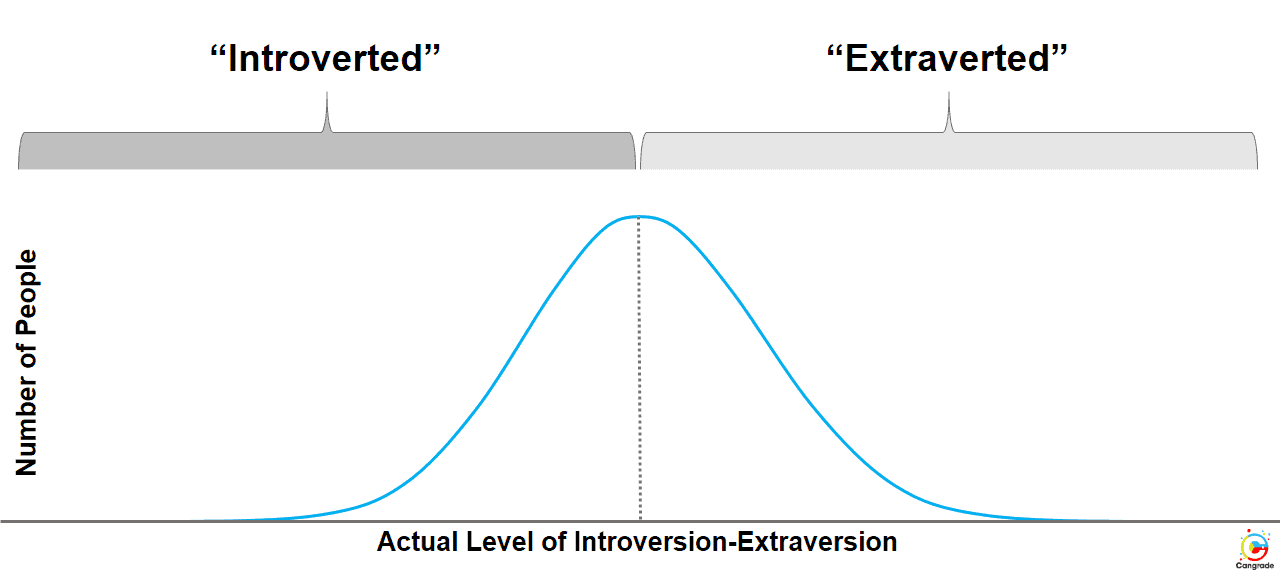Personality Types Don’t Exist
What’s your personality type?
Some of the most popular assessments claim that people have distinct personality types and that you can take the assessment to find out yours. They also claim that the information they provide can help you to learn something important about yourself and the people around you.
But there is no evidence that any of this is actually true.
Personality types are usually wrong
This sounds surprising at first but actually makes sense if you think about it. If someone tends to be more extroverted, you could label them as “an extrovert” and if someone tends to be introverted, you could label them as “an introvert.”
What’s the problem with that? Most people aren’t particularly introverted or extroverted. Some people are, but most people are not. The majority of people fall somewhere in the middle—they’re not actually all that different from one another. Putting these people in different groups makes small differences look like large ones.

Because personality type distinctions are decided so arbitrarily, they actually tend to fail a very basic test of reliability. If the same person actually takes the same personality type assessment twice, they quite often get different results.
How can you describe these different groups accurately?
Personality-type assessments emphasize differences (thus exaggerating them, because most people aren’t really that different). If they were more honest, they would emphasize that most people aren’t all that different, though a smaller minority within each group are. This is a more accurate description, but obviously not that helpful for most people.
What’s the point then?
Personality-type assessments claim that they can provide you with useful insights or advice. That would be nice, if it were true.
What can they really tell you about your motivations, preferences, strengths, and weaknesses? Personality type assessments tend to provide advice aimed at people who are particularly high or low on a given trait or set of traits. Such advice doesn’t really apply all that strongly to most people. If they were more honest, they would emphasize that such advice actually applies more to a smaller minority within each group.
Or they would give the different groups much more similar advice (since most people aren’t all that different on most traits). This would be more accurate, but still not particularly helpful for most people. But perhaps even more importantly, is any of this advice based on actual evidence?
Well…
Reality is messy
When scientists actually test these ideas, the reality is much more complex.
Personality traits certainly are important for predicting a person’s motivations, preferences, strengths, and weaknesses. But in doing so, people do not fall into neat little categories. It is never that easy to understand or explain as a personality type. Human personality is incredibly complex.
Scientists can spend their entire careers just trying to understand small pieces of what personality really is, and how it actually works.
Psychologists and psychiatrists conduct numerous interviews, case studies, and complex experiments that sometimes last for decades. Neuroscientists examine brain structures and mechanisms. Geneticists and biologists tackle the basic building blocks of life itself. Each piece of the unfolding puzzle is important, but none of them are simple or easy to understand.
If someone tries to give you a simple explanation for such a complex thing, you should be very skeptical.
Discover how Cangrade can predict candidates’ future performance up to 10x more accurately than traditional hiring methods without putting applicants in broad personality type buckets. See our science.